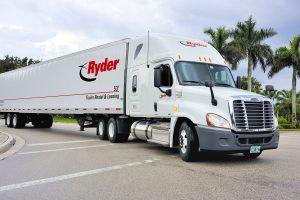 Navigating the new normal of uncertainty in the trucking market requires embracing new strategies. For many fleet owners seeking to reduce risk and expense, that means considering leasing as an option rather than owning.
Navigating the new normal of uncertainty in the trucking market requires embracing new strategies. For many fleet owners seeking to reduce risk and expense, that means considering leasing as an option rather than owning.
The trend is already underway: Results of a detailed survey that the Truck Renting & Leasing Association (TRALA) recently conducted of about 500 of its members indicated that 22 percent to 24 percent of all Class 2-7 trucks on the road today are leased or rented. The range rises to 25 percent to 28 percent in the Class 8 segment.
Driving this trend is a combination of current and potential regulatory and tax rule changes, plus the steep rise in the cost of commercial truck ownership over the past decade, the association found. The high cost of maintaining newer trucks with complicated technology was also a factor, according to the association, along with the reluctance of business owners to tie up capital in their fleets.
Consider these questions when you begin to explore leasing rather than owning:
- Can I use the capital invested in my fleet in a better way?
- Do I spend too much time and money managing my fleet?
- Am I up-to-date on the complexities of engine technology, regulations and emissions standards?
- Can I drive more value from my fleet while gaining time to focus on my business and customers?
A full service lease for your fleet addresses all of the concerns raised by your answers to these questions. It frees up capital, gives you the time to focus on your business rather than on transportation, and takes the time and worry out of regulation compliance.
The truth is, owning, running, and maintaining a fleet can be costly. Unpredictable costs, breakdowns, and unseen risk can take your focus away from your business and your customers. With a full service lease, you get a fleet you can rely on, predictable monthly costs, and rapid emergency vehicle replacement.
Through a full service lease, your monthly payment can actually be less than what you are paying by owning your fleet. You also limit your risk should your vehicle breakdown, as maintenance is covered.
Many company owners feel owning their vehicles is the only way they can brand their fleet, benefit from tax deductions, and have total control among other things. But these can all be attained through a lease as well. And the benefits a full service lease brings to a business' bottom line are impressive.
For Sherwood Foods, partnering with Ryder for a full service lease is the key to the company's being able to ship 16 million pounds of food products weekly - many of which are highly perishable - in perfect condition and on-time to 5,000 customers. Missing one tight delivery window can significantly impact customer satisfaction and business operations.
Sherwood Foods' executives also say their partnership with Ryder also helped the company:
- Obtain trucks on short notice to enter new markets and locations
- Get replacement trucks and trailers immediately available in the event of a breakdown
- Have better fuel efficiency from fleet enhancements like automated transmissions
- Achieve a predictable monthly rate for all trucks and maintenance
- Follow a preventive maintenance schedule that maximizes vehicle uptime for improved on-time deliveries
- Get better control of its fleet through a top quality fleet reporting system and cutting-edge diagnostic and repair equipment used by expert technicians
By collaborating with a third-party provider for a full service lease, you can put the complexities of managing your fleet behind you. With a full service lease you won't have to worry about acquiring, managing, and disposing of the vehicle. Flexible financing options, vehicle specification, repair and preventive maintenance are also included.
What you get is a reliable fleet, tailored to your business with a predictable monthly payment.
Like what you read? to our blog for industry insights and tips right in your inbox.
